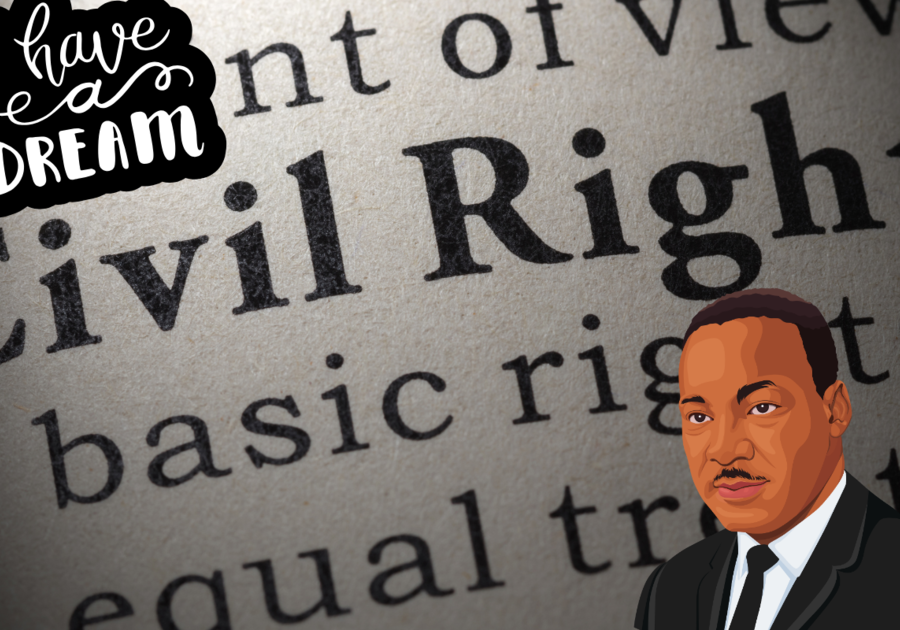Every year, on the third Monday in January, the United States honors the life and legacy of Dr. Martin Luther King Jr. Through his courage, vision, and dedication to justice, Dr. King became the face of the Civil Rights Movement, a leader who sought to create a more equitable society where all people, regardless of race, could live in peace and harmony. His holiday, Martin Luther King Jr. Day, is not only a time for reflection but also an opportunity for us to think about the progress we’ve made and the work still needed to fully realize the dream Dr. King set forth.
As we celebrate this important day, it’s essential to remember that the spirit of Dr. King's dream lives on in each generation. For the sake of our children and the future, it’s crucial that we instill the values he stood for—equality, nonviolence, and community—into the hearts and minds of younger generations. In this article, we’ll explore the significance of Martin Luther King Jr. Day and offer practical ways to teach our children how to keep his dream alive.
The Significance of Martin Luther King Jr. Day
Martin Luther King Jr. Day is more than just a holiday from school or work. It is a day of reflection, education, and action. It serves as a reminder of the struggles faced by millions during the Civil Rights Movement and the ongoing challenges to racial equality and social justice. Dr. King’s tireless efforts led to landmark changes in American law, most notably the Civil Rights Act of 1964 and the Voting Rights Act of 1965, but his ultimate vision was a society where all people would be judged by the content of their character rather than the color of their skin.
King's advocacy for nonviolence and peaceful protest was not just a tactic but a moral stance. His philosophy of love, forgiveness, and understanding in the face of adversity is as relevant today as it was in the 1960s, especially as we continue to witness social divisions, racial inequality, and struggles for justice. By honoring Dr. King’s contributions on this day, we not only commemorate the progress made but also renew our commitment to continuing his work.
Teaching Our Children About Dr. King's Dream
One of the most important things we can do on Martin Luther King Jr. Day is educate our children about the significance of the day and Dr. King's enduring message. Children are the future, and their understanding of Dr. King’s legacy will shape the world they inherit. Here are some practical ways to teach them about his dream and how they can contribute to making it a reality.
1. Share the Story of Dr. King’s Life
Introduce children to the story of Dr. Martin Luther King Jr. through age-appropriate books, documentaries, and discussions. His life story is one of determination and hope, from his early days as a pastor to his leadership in the Civil Rights Movement. Share with them the challenges he faced, such as segregation, discrimination, and violence, as well as his responses—calm, patient, and steadfast commitment to nonviolence.
Books such as "I Am Martin Luther King Jr." by Brad Meltzer for younger children and "Martin’s Big Words" by Doreen Rappaport provide engaging, accessible ways to introduce kids to his life and philosophy. For older children, documentaries like "King: A Filmed Record" or "Selma" can deepen their understanding of the historical context and his remarkable leadership.
2. Teach the Principles of Nonviolence
Dr. King was a proponent of nonviolent resistance to injustice. One of the most important lessons we can teach our children is how to handle conflict peacefully. Encourage discussions about what it means to treat others with respect, resolve differences without anger, and stand up for what is right in peaceful, constructive ways.
In practice, this can involve role-playing scenarios with your children where they practice resolving conflicts with kindness and empathy. You can also talk about everyday situations in which they can promote peace, whether in school, at home, or in their communities.
3. Discuss the Importance of Equality and Justice
Dr. King’s dream was centered on equality—for people of all races, ethnicities, and backgrounds. Take time on Martin Luther King Jr. Day to talk about what equality means, why it is important, and how each person deserves to be treated with dignity and respect. Use real-world examples to illustrate how prejudice, discrimination, and bias still exist and how we can work to break down these barriers.
For younger children, you might explain that treating everyone fairly is like making sure everyone gets a fair turn, whether it’s in a game or during group activities. For older children, you can discuss issues such as systemic racism, income inequality, and access to opportunities, and empower them to think about ways they can make a positive impact in their own communities.
4. Encourage Acts of Service
One of Dr. King’s core beliefs was that we should serve others and contribute to the well-being of our communities. Martin Luther King Jr. Day is a day of service, where people across the nation volunteer to help those in need. It’s an excellent opportunity to show children that keeping Dr. King’s dream alive isn’t just about words but about actions that make a difference in the lives of others.
Organize a community service project, such as helping at a food bank, cleaning up a park, or assisting the elderly in your neighborhood. This will help children understand that positive change starts with the small, everyday acts of kindness and that we all have a role to play in building a better world.
5. Promote Diversity and Inclusivity
Dr. King’s dream was one of a united nation, where people of all races, religions, and backgrounds could live together in peace. Celebrate the diversity of your own community by exposing children to a variety of cultures, traditions, and perspectives. Encourage them to form friendships with people from different backgrounds and to embrace the richness that diversity brings.
You can also use Martin Luther King Jr. Day as a springboard for learning about other historical figures who have fought for justice, such as Rosa Parks, Nelson Mandela, or Cesar Chavez. Understanding these figures’ contributions to equality will help children see that the pursuit of justice is a global effort, one that transcends time and place.
6. Inspire Hope and Action for the Future
Above all, Dr. King was an eternal optimist. Despite the hardships and setbacks he faced, he never lost faith in the possibility of a better future. Teach children that they, too, can be change-makers and that they have the power to help shape a world that reflects the values Dr. King fought for. Encourage them to think about ways they can contribute to positive change in their own lives, whether by standing up against bullying, advocating for fairness, or being leaders in their schools and communities.
Martin Luther King Jr. Day is a powerful reminder of the need for justice, equality, and compassion in our world. By taking the time to teach our children about Dr. King’s life and message, we help them understand the importance of standing up for what is right, promoting peace, and building a more just and inclusive society.
Dr. King’s dream was not a passive vision but an active call to action. As we honor him, let us commit to carrying that dream forward through our actions, our words, and, most importantly, through the lessons we pass on to the next generation. Through education, service, and the promotion of justice, we can help ensure that Dr. King’s dream lives on in the hearts and actions of tomorrow’s leaders.
*This article was made with AI assisted research*



